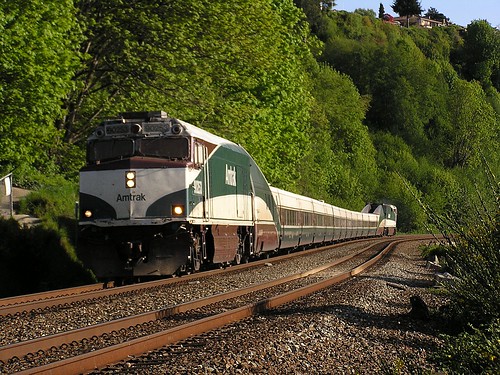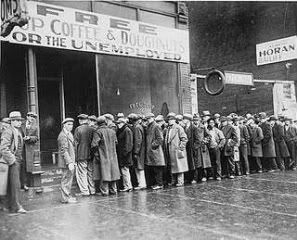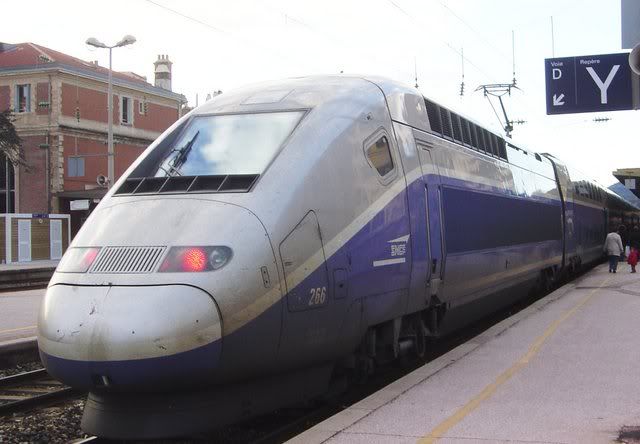Burning the Midnight Oil for Living Energy Independence , crossposted from The Hillbilly Report
 It is widely remarked that the US Department of Transport map of High Speed Rail Corridors leaves a lot of obvious holes.
It is widely remarked that the US Department of Transport map of High Speed Rail Corridors leaves a lot of obvious holes.
Often, this reflects a misunderstanding of what the DoT is mapping. This is not a “Master Plan”. There is no HSRail planner division inside the Federal Rail Administration inside the Department of Transport that is working away at deciding which corridor should be added to the corridor.
Instead, what they have mapped are the corridors that are eligible for HSRail funding. The way that things are set up is that a state or group of states do some planning, petition Congress be designated as a HSRail corridor, or added to a corridor, or for less sweeping changes petition the Department of Transport to revise an existing corridor, and {*voila*}, that’s a designated corridor.

 Morris
Morris  Freakonomist Eric Morris finishes up his tag-team attack with Ed Glaeser on the HSR policy with a post that confesses to the hack jobs both are doing on HSR policy – but works hard to spin the confession into a defense of the hackery.
Freakonomist Eric Morris finishes up his tag-team attack with Ed Glaeser on the HSR policy with a post that confesses to the hack jobs both are doing on HSR policy – but works hard to spin the confession into a defense of the hackery. I guess its natural, as an advocate for transport cycling and for transport systems like High Speed Rail, light rail, and Quality Buses that support cycle transport, that among the enemies of our long term national interest, I tend to focus on the Oil Patch and their allies.
I guess its natural, as an advocate for transport cycling and for transport systems like High Speed Rail, light rail, and Quality Buses that support cycle transport, that among the enemies of our long term national interest, I tend to focus on the Oil Patch and their allies. Bonddad has
Bonddad has  Perhaps there is a recipe for being “provocative” when you do not, after all, want to depart from the economic mainstream – despite the radical incapacities that have come to prominence in the last year – and do not want to upset powerful vested interests.
Perhaps there is a recipe for being “provocative” when you do not, after all, want to depart from the economic mainstream – despite the radical incapacities that have come to prominence in the last year – and do not want to upset powerful vested interests. Dan Walters
Dan Walters